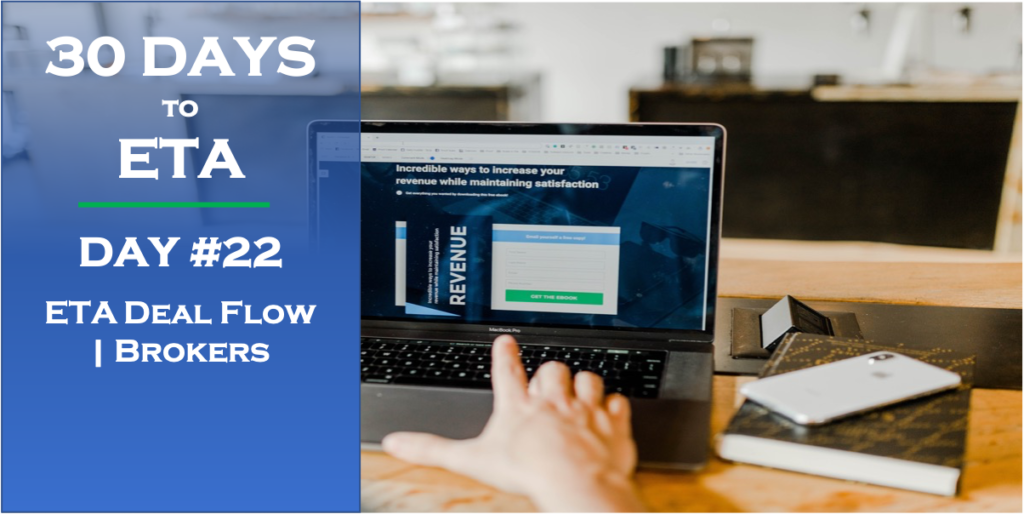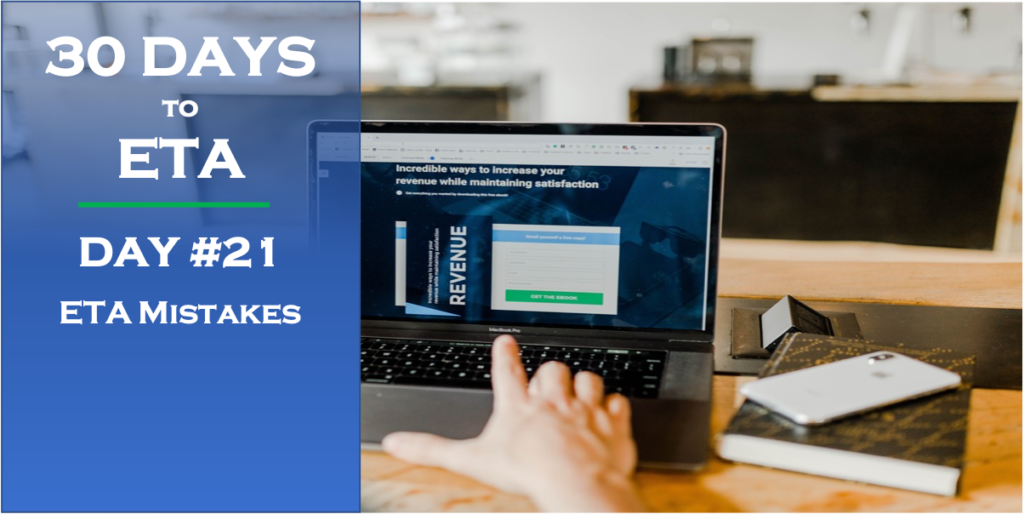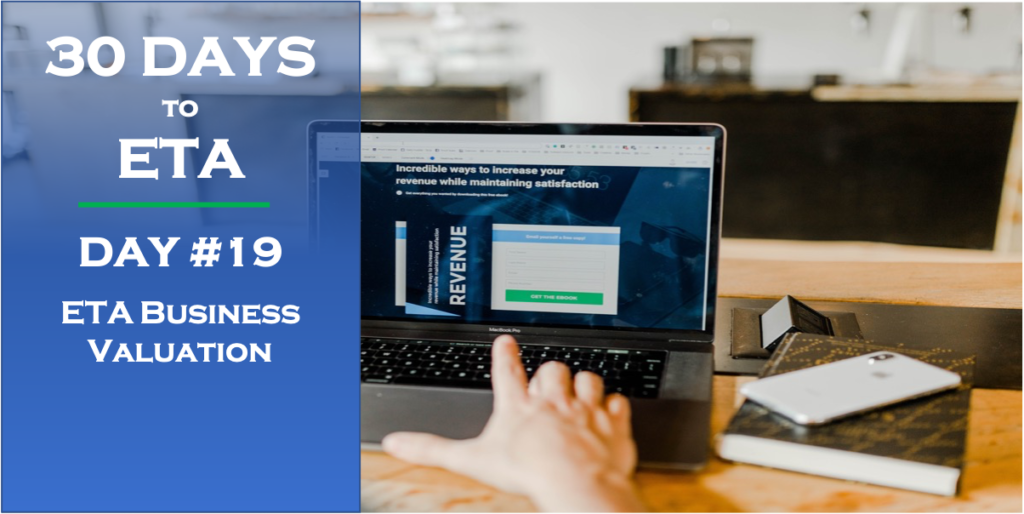If you’ve been reading along in this 30 Days to ETA series, you know that in the Day #21 post I discussed how as Acquisition Entrepreneurs you can bet that there will be mistakes made, something I call ETA Mistakes. You can make one mistake, or you can make one million! Regardless of how many mistakes you make, how you recover from them will make a massive difference (You can read the previous post by CLICKING HERE). One mistake that I see time and again made by Entrepreneurs Through Acquisition (ETA) is not having enough opportunities in the Mergers & Acquisitions pipeline. So, in today’s 30 Days to ETA post, we’re going to explore ETA Deal Flow | Brokers… Enjoy!
ETA Deal Flow | Brokers
At Tip of the Spear Ventures, we’re often asked our opinion on broker utilization. A Broker can help you more than you might be thinking in an acquisition. On the one side — The Sell Side Broker — they represent the seller of the business. On the other side, and this one is often more rare — The Buy Side Broker — represents the buyer (you, the ETA or Acquisition Entrepreneur) with the purchase of a business. We mostly think of brokers as only representing the seller — Sell Side Broker. Mostly, they initiate and mediate the interactions between the buyers and sellers. In fairness, each one provides a similar service. However, each has a different skill set that provides different advantages and disadvantages for particular buyers and sellers. So let’s identify the players, look at their skills sets, and decide how you will work with each broker as you look to conduct ETA in 30 Days!
#1. The Sell Side Broker
Also known as a business transfer agent, or intermediary, a Sell Side Broker acts as a mediator between buyers and sellers.
Who Do They Serve?
Typically, the Sell Side Broker serves smaller, local or regional “mom-and-pop” companies that gross less than five million dollars in yearly sales. According to the Exit Planning Institute (EPI), around five million companies fall into this small business category. Those companies usually sell for less than five million dollars and sell to individual buyers. For the most part, they also have less than one million dollars in EBITDA, or Earnings Before Interest, Tax, Depreciation, and Amortization.
How Do They Get Paid?
Sell Side Brokers do not tend to charge sellers an upfront fee for services. If they have to clean up a huge mess to get the seller positioned to sell, however, they may charge an initial set-up fee. But most of the time, they don’t. Instead, they often charge a commission that funds and pays them at the time the business sells. So no fee for you as the Acquisition Entrepreneur!
What Do They Expect?
The Sell Side Broker requires the seller to compile a multitude of materials to prepare for the sale. Those could include marketing materials used, past and present financial reports, or financial forecasts. In medical fields, a business broker might ask for total patient counts and demographics. Sellers may even have to list what types of procedures, services, or products they offer and how many they provide or sell on an average day. Although sellers will have to provide quite a bit of documentation to the broker, they don’t usually have to go to an accountant for help or additional compilations. What are they looking for the Buyer to do? You probably guessed it, the higher their commission is a direct relative of the sale price of the business. So, they want you to show up at closing with bags of cash!
What Benefit Do They Provide?
Similar to a realtor, the Sell Side Broker walks sellers, and sometimes buyers, through the sales process. The facilitating broker can list the business for sale, develop marketing strategies to attract buyers, arrange business walk-throughs, meet with buyers’ agents, answer questions, and help negotiate sales terms and conditions if issues arise. Essentially, he puts polish on the business to make it look better to attract a buyer. He also acts as a cushion, or an emotional barrier if you will, between the buyer and the seller. His objectivity and creativity repairs hurt pride and dampens fiery tempers if the sales process does not go according to plan. For the buyer, they can also be a pollyannaish resource and their advice/counsel should be seen as such.
#2. Buy Side Broker
The converse of the Sell Side Broker is that of a Buy Side Broker, who acts as a mediator between buyers and sellers but acts in the best interest of the buyer who hires them.
Who Do They Serve?
As stated above, the Buy Side Broker represents you — the Acquisition Entrepreneur — throughout the Mergers & Acquisitions process. You find them and hire them, they then work for you.
How Do They Get Paid?
Buy Side Brokers charge buyers an upfront fee for services. Think of them as a key member of your ETA Professional Team, and unlike the Sell Side Broker who works for the seller and their best interest, they work for you and your best interest.
What Do They Expect?
I’m often asked why would an ETA want a Buy Side Broker? Simple — Most ETA or Acquisition Entrepreneurs are likely buying their first business. With this heading into often unknown spaces, a Buy Side Broker can help explain what the process is and act as a Sherpa if you will. They expect you to follow their guidance (and you hired them, so why wouldn’t you?)
What Benefit Do They Provide?
With this first business comes much upheaval! Think of an acquisition as an ocean with several highs and lows of the wave — or the waves trough and crest. A good Buy Side Broker will help calm those waves, making the acquisition a more expensive one for the buyer, but a better one with less frayed nerves!
SUMMARY
Iin today’s 30 Days to ETA post, we’re going to explore ETA Deal Flow | Brokers. Having a broker may be vital whenever you’re getting ready to acquire a business. Whether to walk you through the entire process and make the business look good to you as the potential buyers or to guide and direct your actions and temper emotions on both parties — Buyer and Seller. Just like the importance of having a sharp attorney when creating a Letter of Intent (LOI) or Purchase Agreement (PA) contract, you will want sharp brokers when implementing those contracts.
Sam Palazzolo




